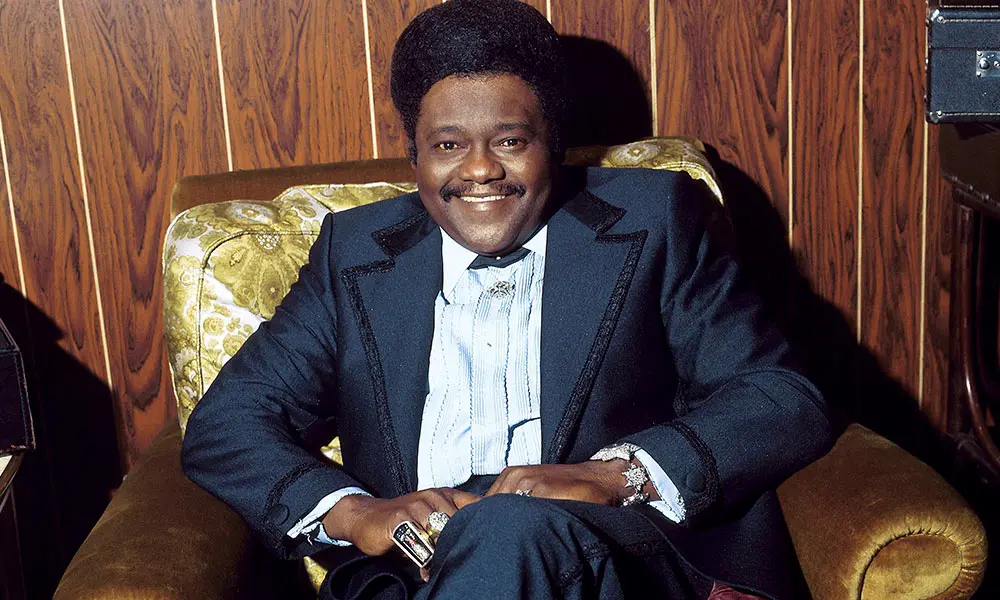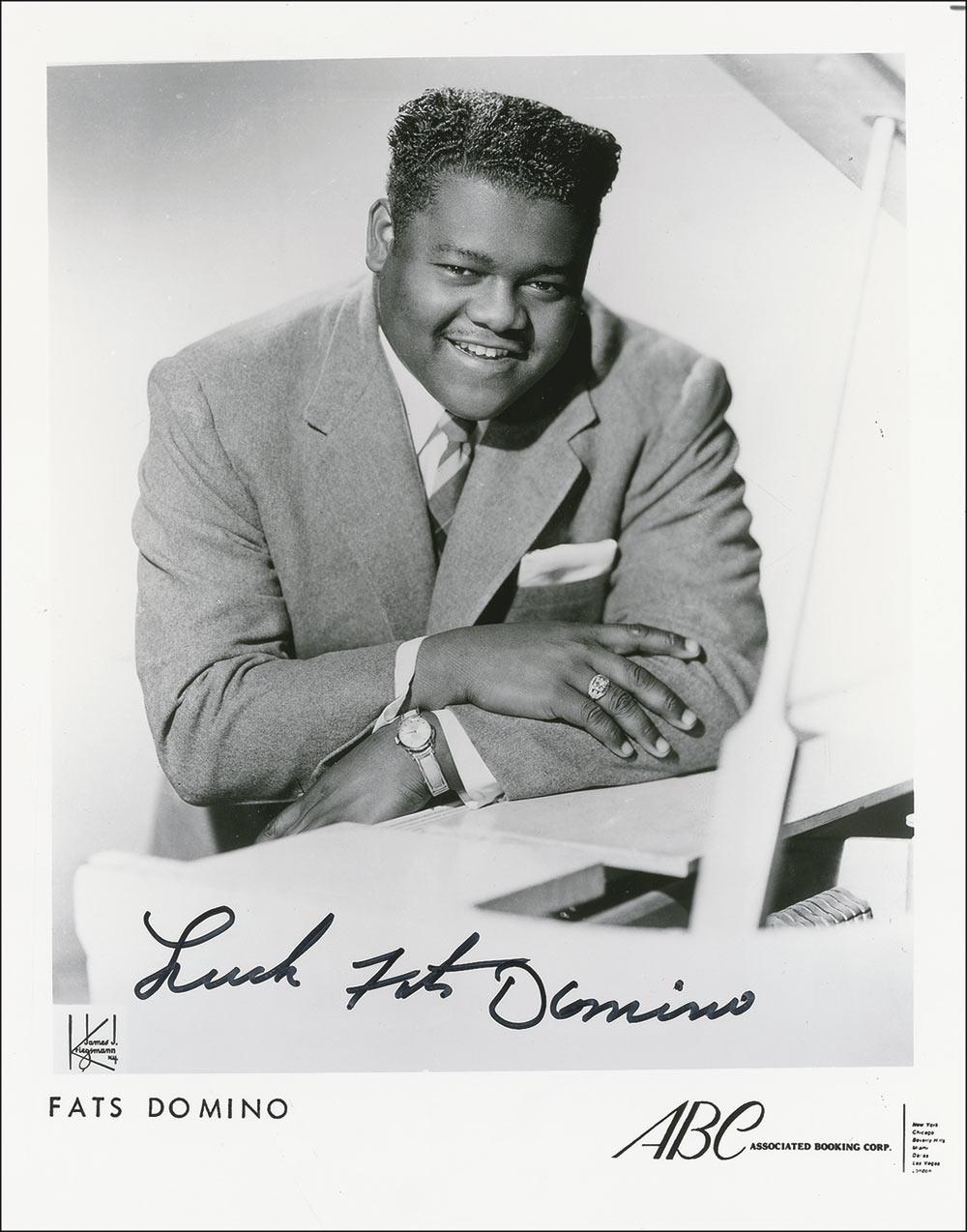

On November 5, 1998, at The White House, he was awarded The National Medal of Arts from President Bill Clinton.

In 1986, Fats Domino received the Grammy Lifetime Achievement Award and was later inducted into the Rock and Roll Hall of Fame. His final Top 100 chart single was on Reprise, a cover of the Beatles' "Lady Madonna", which peaked at number 100 in 1968. Imperial Records was sold in early 1963, and Domino left the label.ĭomino moved to ABC-Paramount Records in 1963.ĭomino continued to record steadily until about 1970, leaving ABC-Paramount in mid-1965 and recording for Mercury, Dave Bartholomew's small Broadmoor label (reuniting with Bartholomew along the way), and Reprise. His 1956 recording of "Blueberry Hill", a 1940 song by Vincent Rose, Al Lewis and Larry Stock (which had previously been recorded by Gene Autry, Louis Armstrong and others), reached number 2 in the Top 40 and was number 1 on the R&B chart for 11 weeks. Domino performed on The Ed Sullivan Show in November of 1956.He partnered with Dave Bartholomew, a bandleader and talented trumpet player, who produced and co-wrote his first record, “The Fat Man” in 1949.ĭomino's debut album, "Carry On Rockin' "was released in November 1955 and was reissued as "Rock and Rollin' with Fats Domino" in 1956.They will forever be in his heart and soul. In spite of his success and many accolades, he was always a very humble man with a smile that lit up a room, and the love of his fans fans was immeasurable, and they undoubtedly loved him back. His career spanned for five decades which produced over 25 gold singles and sold over 65 million records. These are some of the countless awards he has been honored to receive over the years. On November 5, 1998, at The White House, he was awarded The National Medal of Arts from then President Bill Clinton. They Include “Blueberry Hill”, “I'm Walking”, “Ain’t That A Shame” and “I'm Walking To New Orleans”, just to name a few. This this was just the beginning of a host of hits to follow. 2 on the R&B charts.īilly Diamond, his road manager, referred to him as “Fats” because the name was a symbol of importance and would be considered to be a classic. It was the first Rock and Roll record to ever sell over 1 million copies, soaring to No. He partnered with Dave Bartholomew, a bandleader and talented trumpet player, who produced and co-wrote his first record, “The Fat Man” in 1949. He married Rosemary Hall, his wife of 60 years and this union produced eight children. Is unique piano style and voice what later attract millions from all over the world. Little did he know at that time that this would lead to an amazing career. His brother-in-law, Harrison Verrett was very influential in his piano playing. However, at a very early age he had an affinity for playing the piano. During his adolescence he held many jobs ranging from working on an ice truck to working at the Crescent City Bed Factory. and Donatile Gros Domino were born in Vacherie, LA. He appeared in the 1956 films 'Shake, Rattle and Rock', and 'The Girl Can't Help It', and there was a near riot at one of his gigs in Fayetteville NC when police used tear gas on the racially mixed audience of kids.A career spanning more than five decades, producing over 25 gold singles and selling over 65 million records - and all in spite of his success and many accolades, Fats was always been a very humble man with a smile that lit up a room.Īntoine “Fats” Domino was born in New Orleans LA, in the lower ninth ward on February 26, 1928. The next two years brought Fats massive success with 'I'm in Love Again', 'My Blue Heaven', 'Blueberry Hill', 'Blue Monday' and 'I'm Walking'. The crossover hit 'Ain't That a Shame' in 1955 established Fats as a genuine star, despite the fact that crooner Pat Boone's version went higher up the pop charts. Only two of the next bunch of singles made the Top Ten but in 1952, the slow Blues, 'Goin' Home' went to No1. It sold a million copies, made No.2 in the R&B Charts and established a smooth, relaxed band sound that characterised Fats' career with Imperial, with Earl Palmer's typically funky New Orleans drumming and some silky brass fills. The breakthrough song was 'The Fat Man', adapted by Fats and Bartholomew from the old 'Junker's Blues', an anti-drug song by local pianist 'Champion Jack' Dupree.


 0 kommentar(er)
0 kommentar(er)
